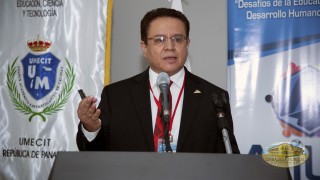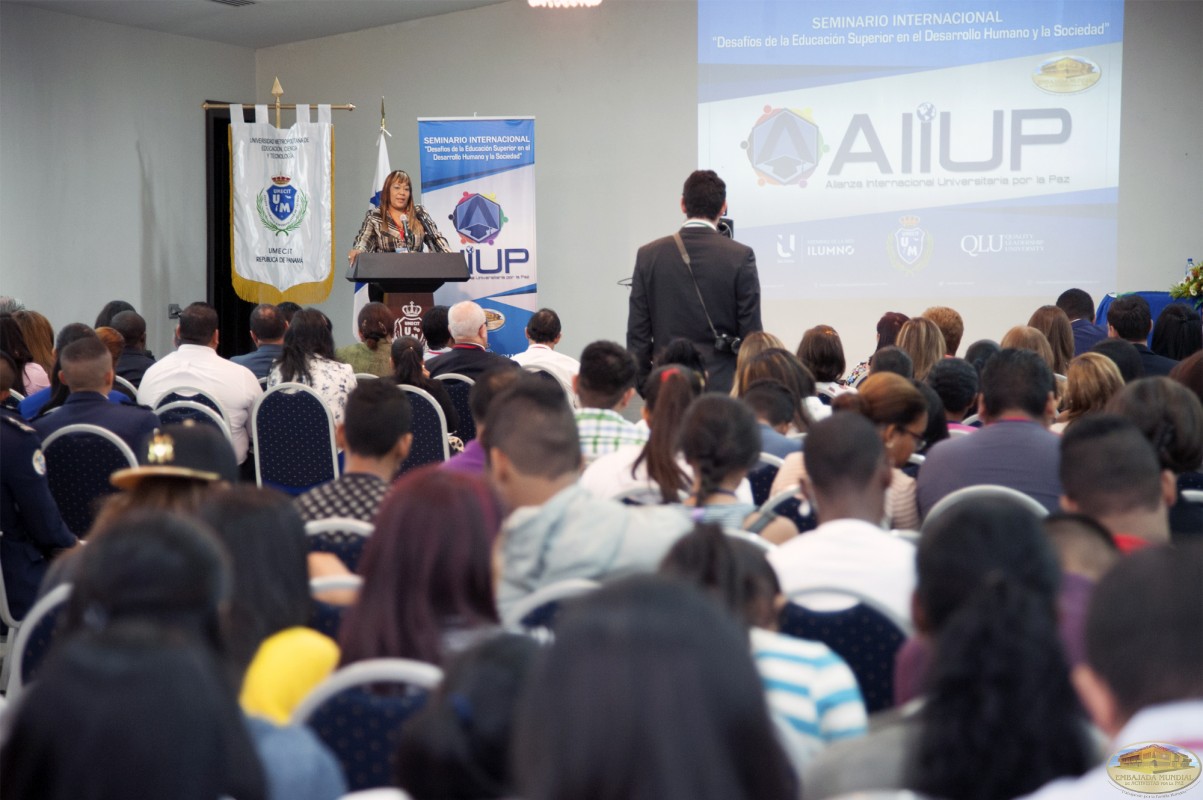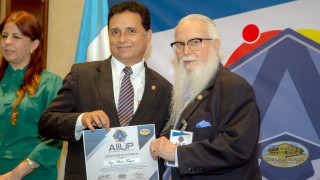With the purpose of developing professional skills for the achievement of a Culture of Peace
The Global Embassy of Activists for Peace (GEAP) carried out the First International Seminar “Challenges of Superior Education in Human Development and Society” as part of their objectives in the Auditorium Claudia Milena Rueda Ossa of the UMECIT in the city of Panama, through the International Alliance of Universities for Peace - ALIUP, along with the Metropolitan University of Education, Science, and Technology - UMECIT, Quality Leadership University, and the University of Istmo; with the participation of 14 local universities, 2 abroad universities, and a large public assistance of 250 people.
The general objective of the program, ALIUP, is to build a culture of peace through quality Education. For which this type of university exchange is developed to strengthen professional skills based on principles and universal values.
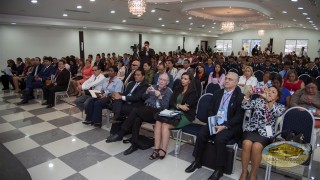
These seminars encourage the academic, scientific, and cultural exchange of professors and students for the creation of educational programs that increase the construction of a culture of peace, as a support for quality education.
For the opening ceremony the Table of Honor was put together by Dr. Jose Alberto Nieto Rojas, Rector of the UMECIT; Dr. Oscar Leon, President of the Association of Private Universities of Panama and Rector of the Quality Leadership University; Dr. Adriana Angarita, Rector of the University of Istmo; Attorney Marlenis Hernandez, Advisor of the Minister of Social Development S. E. Alcibíades Vásquez Velásquez, and Ariel Cerrud, Coordinator of the GEAP in Panama.
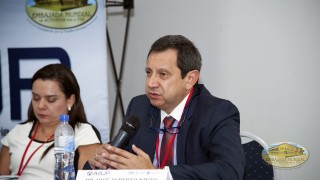
The opening presentation of the seminar was conducted by Dr. Jose Alberto Nieto Rojas, who reaffirmed the commitment of the institution with values in education:
“UMECIT is committed to be a democratic university, of actions with responses to society and committed in the formation of students, actors of a sustainable economic development; honest professionals and with values.
We are pleased today to be developing a complete action within the Challenges of Superior Education in the Development of Society. We hope that these conclusions can contribute to develop a University Chair for Peace.”
The panelists focused their interventions on perspectives towards the construction of a culture of peace through education based on the pacifist solution of conflicts, inclusion, respect, and the defense of human rights.
In his intervention, the honorable congressman Gabriel Soto, general secretary of the Commission of Education of the National Assembly of the Republic of Panama, highlighted the importance of teaching peace in university institutions, and he said:
“Today we can live in peace, but we must continue building and contributing in this path; youths must be active and proactive in this area. Taking advantage of this opportunity is fundamental, we need professionals who are more capable of contributing in the development that this country needs. Not only Panamanians but foreigners, we must not exclude anyone, we are a globalized country. I encourage congressmen, teachers, and students to participate in these events that seek Peace.”
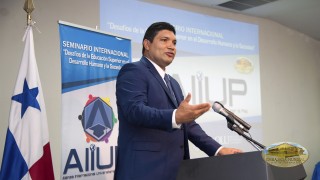
The development of the event was carried out in two discussion tables, where six important universities had representation to share experiences to strengthen the transmission of knowledge in pro of a formation of a culture of peace.
In the first discussion, given by Dr. Aurora Altamar, dean of the Faculty of Biosciences and Public Health of the Specialized University of the Americas; Dr. Antonia Torres Viteri, vice academic chancellor of the Bicentenary University of Aragua de Venezuela; and Dr. Carlos Kohn, professor of the Central University of Venezuela; spoke about “The universities role in promoting peace before the challenges of the 21st century.”
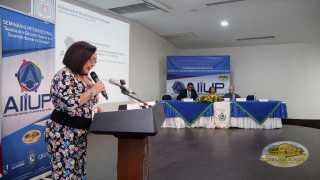
In this table, topics concerning “the curricular approach for Skills, Self-Regulating Entropy Transcompletion, which constitutes the development of the functions of teaching, investigation, production and projection, and social interaction; and seek to implement oneself through the integral formation and application of learning strategies for the development to be, to know, to do, and to live among others”, were given by Dr. Antonia Torres Viteri.
The second table developed the topic “Peace as a transversal idea in University administration for human sustainable development”, and Dr. Constantino Riquelme, director of the School of Law in the Catholic University Santa Maria la Antigua; Dr. Jose Alberto Nieto, rector of the UMECIT; Dr. Oscar Leon, rector of the Quality Leadership University; and Dr. Adriana Angarita, rector of the University of the Istmo, were also part of that discussion table.
The closing of the presentations was conducted by Dr. Efrain Gonzalez, national director of Third Level Teaching of the Ministry of Education; afterwards a discussion group, a questions and answers session was opened, where successful experiences regarding peace were shared.
